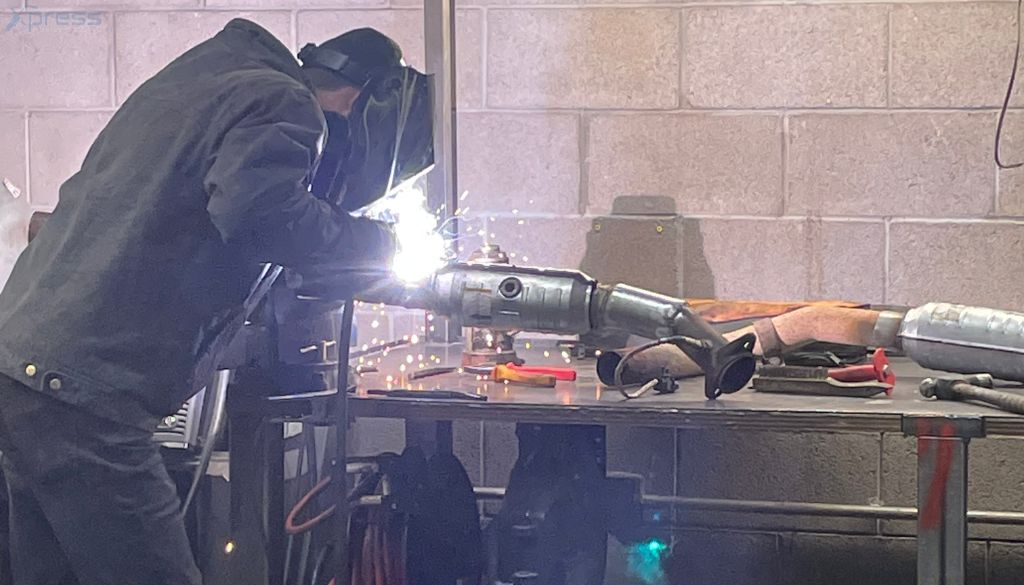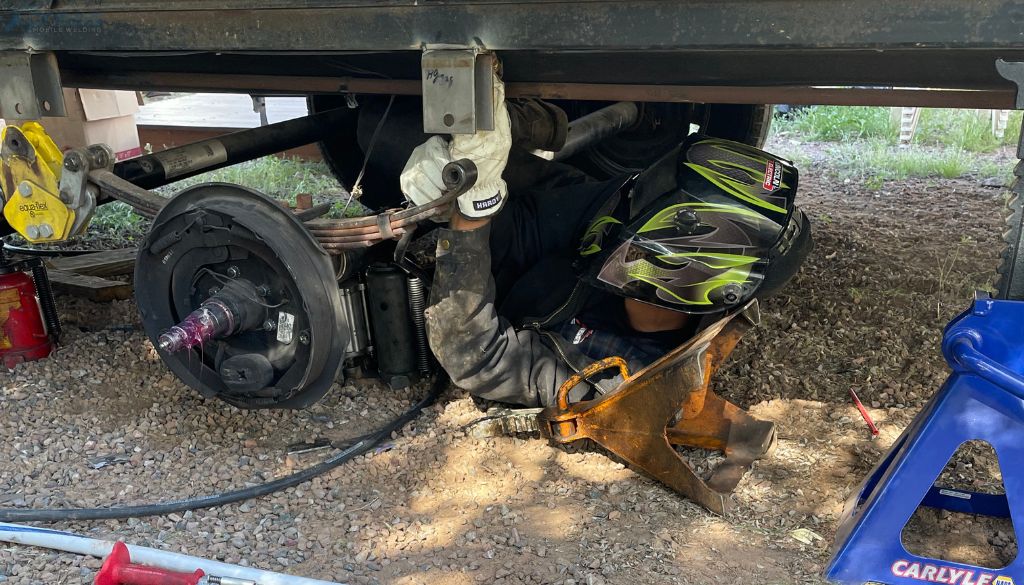
Rapid mobile dispatch services represent the cutting edge of field operations management, enabling businesses to coordinate mobile workforces with unprecedented speed and efficiency. These systems leverage mobile technology, GPS tracking, and real-time communication tools to connect dispatchers with field personnel instantly, streamlining job assignments, route optimization, and emergency response. In today's fast-paced business environment where customer expectations continue rising, mobile dispatch solutions provide the competitive advantage necessary to deliver superior service while controlling operational costs.
Introduction to Rapid Mobile Dispatch & Industry Overview
Rapid mobile dispatch is a technology-driven approach to managing field service operations through mobile devices, enabling instant communication, job assignment, and location tracking between central dispatch centers and mobile workers. This mobile workforce management system has revolutionized how organizations coordinate technicians, drivers, emergency responders, and service personnel across diverse industries.
The importance of rapid mobile dispatch spans logistics, field service, emergency response, utilities, healthcare, and countless other sectors requiring efficient coordination of distributed teams. Traditional dispatch methods relying on phone calls, paper tickets, and manual scheduling cannot match the speed, accuracy, and visibility modern mobile dispatching provides. Companies implementing these systems report dramatic improvements in response times, customer satisfaction, and operational efficiency while reducing fuel costs, overtime expenses, and administrative overhead.
The mobile dispatch industry continues expanding rapidly as businesses recognize that fast field service dispatch capabilities directly impact bottom-line results and competitive positioning. Organizations that optimize dispatch operations gain measurable advantages in service delivery, resource utilization, and customer retention.
How Mobile Dispatch Works
The mobile dispatch process begins when service requests enter the system through customer calls, online portals, or automated monitoring systems. Dispatch software features analyze incoming requests, evaluate available field personnel based on location, skills, and availability, then assign jobs to the most appropriate workers. Mobile applications on smartphones or tablets instantly notify field personnel of new assignments with complete job details, customer information, and navigation assistance.
Dispatchers monitor all field operations through centralized dashboards displaying real-time locations, job statuses, and performance metrics. Workers update job progress through their mobile devices, triggering automatic notifications to customers and dispatchers. The system continuously optimizes routing as new jobs arrive or conditions change, ensuring maximum efficiency throughout the day.
Key Features of Top Dispatch Systems
Leading dispatch tracking systems incorporate multiple advanced features that collectively deliver superior operational performance. Real-time location services enable dispatchers to see exactly where every field worker is positioned at any moment, facilitating accurate estimated arrival times and enabling rapid response to urgent situations. Automated scheduling algorithms optimize job assignments based on proximity, skills, equipment, and workload balancing.
Geofencing technology creates virtual boundaries triggering automatic actions when workers enter or exit designated areas—logging arrival times, sending customer notifications, or updating job statuses without manual input. Integrated video capabilities enable remote assistance where technicians can stream live video to subject matter experts for troubleshooting complex problems. Push notification systems ensure critical alerts immediately reach field personnel regardless of whether dispatch applications are actively open.
Real-Time Communication Tools
Dispatch communication tools form the backbone of effective mobile coordination. Push-to-talk functionality provides instant voice communication between dispatchers and field teams without dialing phone numbers or navigating menus. Call recording preserves conversations for quality assurance, training, and dispute resolution. Secure messaging enables text communication for situations where voice calls aren't practical, with full message history available for reference. These integrated communication channels eliminate the inefficiencies of juggling multiple disconnected communication tools.
Fleet Tracking & Location Services
GPS dispatch and fleet tracking capabilities provide comprehensive visibility into mobile workforce movements and vehicle utilization. Location history reveals complete travel patterns enabling analysis of routing efficiency, compliance verification, and performance optimization. Real-time maps display all vehicles and workers with status indicators showing availability, current assignments, and estimated completion times. Geofencing creates virtual zones around customer sites, service territories, or facilities, automatically tracking arrivals, departures, and time spent at locations. These location services enable data-driven decisions improving operational efficiency while ensuring accurate billing and accountability.
Benefits of Rapid Mobile Dispatch Services
The benefits of mobile dispatch extend across multiple operational dimensions, delivering measurable improvements that directly impact profitability and customer relationships. Fast response times enabled by optimized routing and instant job assignment reduce customer wait times, increase same-day service completion rates, and enable businesses to handle higher call volumes without expanding workforce size. Enhanced visibility into field operations eliminates communication gaps, reduces errors from manual data entry, and provides managers with real-time oversight enabling proactive problem-solving.
Enhanced User Experience & Fast Response
Speed and reliability in service delivery translate directly to happier clients and stronger customer loyalty. When customers receive accurate arrival windows, proactive status updates, and quick resolution of their needs, satisfaction scores rise dramatically. Mobile dispatch enables businesses to provide Amazon-level service experiences where customers expect transparency, speed, and convenience. Real-time tracking allows customers to see when service personnel will arrive, reducing frustration from uncertain wait times. Faster problem resolution means less downtime for customers, particularly critical in industries like HVAC, plumbing, or IT services where equipment failures disrupt business operations or comfort.
Lower Operational Costs
Streamlined operations through mobile dispatch generate substantial cost savings across multiple categories. Optimized routing reduces fuel consumption and vehicle wear, cutting transportation expenses by 15-30% in typical implementations. Automated job assignment and status updates eliminate administrative time previously spent on phone calls and paperwork, allowing dispatchers to manage larger teams efficiently. Reduced overtime results from better workload balancing and elimination of inefficient travel patterns. Improved first-time fix rates from better preparation and remote assistance capabilities decrease repeat visits. These cumulative savings often exceed the total cost of mobile dispatch systems within the first year.
Competitive Edge in Field Services
In competitive markets, service speed and reliability differentiate leaders from followers. Companies with rapid response capabilities capture market share from slower competitors, particularly in emergency and time-sensitive service categories. Mobile dispatch enables businesses to confidently guarantee faster response times, offer same-day service, and provide transparent tracking—features increasingly expected by customers accustomed to on-demand services in other industries. Organizations demonstrating operational excellence through technology attract premium customers willing to pay for superior service while building reputations that generate referrals and repeat business.

Industries Using Mobile Dispatch
Mobile dispatch for logistics, emergency response, and maintenance sectors demonstrates the versatility of these systems across diverse applications. Transportation and delivery companies use mobile dispatch to optimize routes, track shipments in real-time, and provide customers with accurate delivery windows. Field service organizations managing HVAC, plumbing, electrical, or appliance repair technicians coordinate hundreds of daily appointments efficiently. Emergency response teams including roadside assistance, medical transport, and utility repair crews leverage mobile dispatch to minimize response times during critical situations.
Courier and messenger services depend on mobile dispatch to handle high-volume, time-sensitive deliveries across urban environments. Facilities maintenance companies managing building systems, landscaping, or cleaning services schedule and track distributed teams serving multiple client locations. Healthcare providers coordinate home health nurses, medical equipment delivery, and mobile diagnostic services. Security companies dispatch patrol officers and respond to alarm activations. Mobile welders and specialized tradespeople use these systems to respond rapidly to urgent fabrication and repair needs, demonstrating how even highly skilled technical services benefit from efficient dispatch coordination. The common thread across these diverse industries is the need to efficiently coordinate mobile workers delivering time-sensitive services across geographic areas.
Choosing the Right Mobile Dispatch Solution
Understanding how to choose dispatch software requires evaluating multiple factors beyond basic features. Scalability ensures the system grows with your business, accommodating increasing transaction volumes, additional users, and expanded service territories without performance degradation or architectural limitations. Mobile compatibility across iOS and Android devices with offline capabilities ensures field workers remain productive even in areas with poor connectivity.
Security standards including encryption, authentication, and compliance with industry regulations protect sensitive customer data and business information. Integration capabilities with existing business systems prevent data silos and eliminate duplicate data entry. Customization options allow tailoring workflows, forms, and reports to match specific business processes rather than forcing operations to conform to rigid software limitations.
Integration with Existing Systems
Seamless integration with CRM, ERP, and field service management applications creates unified operational environments where data flows automatically between systems. Integration with accounting software automates billing based on completed jobs and tracked time. Connection to inventory management systems ensures technicians have necessary parts available. CRM integration maintains complete customer history including service records, preferences, and communication logs. These integrations eliminate manual data transfer, reduce errors, and provide comprehensive business intelligence for strategic decision-making.
Mobile-First Design Best Practices
Effective mobile dispatch applications prioritize responsive layouts that automatically adapt to different screen sizes and orientations, ensuring usability on smartphones, tablets, and desktop computers. Interface speed and responsiveness are critical—field workers won't consistently use applications that load slowly or lag during interactions. User-friendly mobile UI design emphasizes large touch targets, minimal text input, and streamlined workflows recognizing that field personnel operate in challenging environments. Attention to Core Web Vitals including loading performance, interactivity, and visual stability ensures excellent user experiences that drive adoption and consistent usage.
Implementing Rapid Mobile Dispatch in Your Business
Implementing mobile dispatch requires systematic planning and execution across technical setup, process adaptation, and change management. Begin by documenting current dispatch processes, identifying pain points, and defining success metrics. Select software that addresses your specific requirements and integrates with existing systems. Configure the system including territory definitions, user permissions, job types, and custom fields matching your operational needs.
Pilot the system with a small team before full deployment, gathering feedback and refining configurations. Provide comprehensive training covering both technical system operation and new workflows. Develop clear standard operating procedures for common scenarios. Plan for ongoing support and continuous improvement based on usage data and user feedback.
Case Studies & Real-Life Examples
A regional HVAC company implemented mobile dispatch and reduced average response time from 4 hours to 90 minutes while handling 40% more service calls with the same technician count. An emergency roadside assistance provider decreased average dispatch-to-arrival time by 22 minutes through GPS-optimized routing. A commercial cleaning company improved client satisfaction scores by 35% after implementing mobile dispatch with automated arrival notifications and service verification photos.
FAQ – Rapid Mobile Dispatch Services
What is rapid mobile dispatch?
Rapid mobile dispatch is a technology system that coordinates field workers through mobile devices, GPS tracking, and real-time communication, enabling instant job assignment, location monitoring, and status updates for fast, efficient service delivery.
How does mobile dispatch improve efficiency?
Mobile dispatch improves efficiency through optimized routing that reduces travel time, automated job assignment eliminating manual coordination, real-time visibility enabling proactive management, and digital workflows replacing paperwork and phone calls.
What industries benefit most from mobile dispatch?
Industries with mobile workforces benefit most—including field services, logistics, emergency response, utilities, healthcare, facilities maintenance, security, and any business coordinating distributed teams serving customers across geographic areas.
How secure are dispatch communications?
Modern mobile dispatch systems use encryption for data transmission, secure authentication, role-based access controls, and comply with industry security standards protecting sensitive customer and business information.
Can mobile dispatch integrate with my current systems?
Most professional mobile dispatch solutions offer integration capabilities with CRM, ERP, accounting, and field service management systems through APIs, enabling seamless data flow and eliminating duplicate entry.
Call to Action — Get Started with Rapid Mobile Dispatch
Ready to transform your field operations with rapid mobile dispatch? Contact us today to schedule a personalized demo showing how mobile dispatch solutions can reduce response times, increase productivity, and improve customer satisfaction for your specific business needs. Try rapid mobile dispatch risk-free with our trial program, or request a consultation to discuss implementation strategies tailored to your organization. Don't let outdated dispatch methods hold your business back—discover how modern mobile workforce management can deliver the competitive advantage you need to thrive in today's demanding service environment.